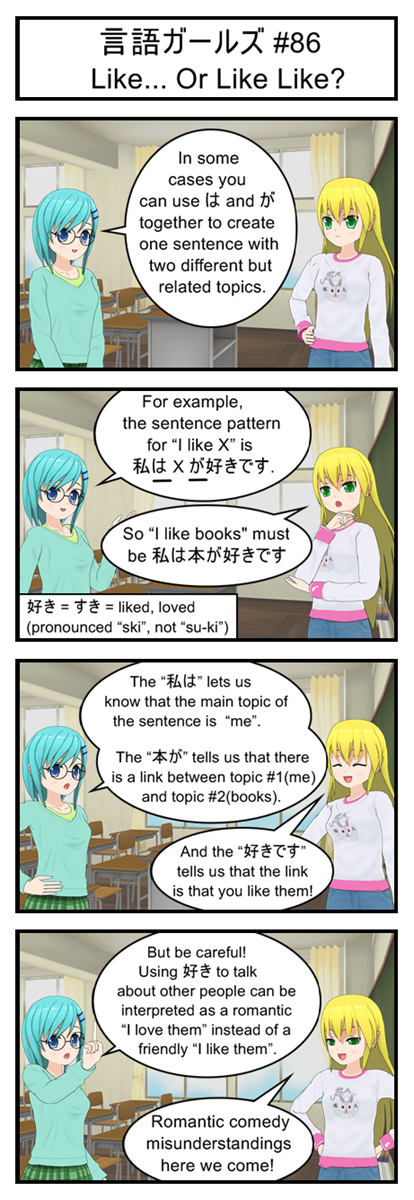
“suki” is a semi-common word in Japanese media. The romantic version of “suki” obviously shows up in just about every romantic drama or comedy in existence. But the non-romantic version gets plenty of use too and even in non-romance works it’s pretty common to hear children “suki” their parents or for people to talk about all the hobbies they “suki”.
Vocabulary
好き = すき = liked, loved (pronounced “ski”, not “su-ki”)
Transcript
言語ガールズ #86
Like… Or Like Like?
Blue: In some cases you can use は and が together to create one sentence with two different but related topics.
Blue: For example, the sentence pattern for “I like X” is 私はXが好きです.
Yellow: So “I like books” must be 私は本が好きです
Blue: The “私は” lets us know that the main theme of the sentence is “me”.
Blue: The “本が” tells us that there is a link between topic #1, me, and topic #2, books.
Yellow: And the “好きです” tells us that the link is that you like them!
Blue: But be careful! Using 好き to talk about other people can be interpreted as a romantic “I love them” instead of a friendly “I like them”.
Yellow: Romantic comedy misunderstandings here we come!